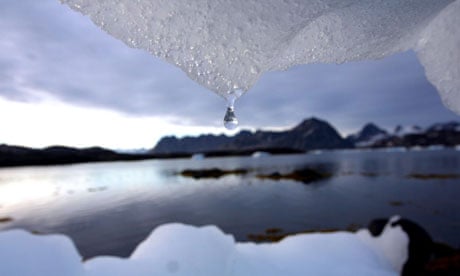Global surface temperatures have risen by almost a degree in the last century. Sea levels have risen, while snow and ice cover has dropped significantly. Coral reefs are being destroyed and weather patterns are becoming wilder and less predictable. And the major cause of this climatic mayhem is now clear. It is the work of humans, who are burning ever increasing amounts of fossil fuel and have raised carbon dioxide levels in the atmosphere by 40% in the past 250 years.
That is the stark conclusion of the draft version of the Intergovernmental Panel on Climate Change's fifth assessment report – prepared by more than 200 leading scientists over the past two years – which will form the core of climate talks in Stockholm this week. It is the IPCC researchers' most confident statement to date of the perils facing our world.
According to the report, more than half a trillion tonnes of carbon – from coal, oil and gas – have now been burned in factories, cars and homes and dumped in the atmosphere since the Industrial Revolution. Burning a further half a trillion tonnes would add a further degree centigrade to global temperatures, it adds. Such is the rate of fossil fuel burning, which is spiralling across the planet, that a second half a trillion tonnes is likely to be consumed in a few decades.
The result could be catastrophic. A further jump in temperatures could trigger events that would accelerate global warming: by releasing plumes of the greenhouse gas methane from the thawing Arctic tundra and destroying polar ice caps that play a role in reflecting solar radiation back into space. Global warming could then start to spiral out of control.
Politicians and senior civil servants will this week quiz scientists about their analysis of the dangers that our world faces. No substantial changes are likely to be made to its wording, however. A scientific consensus is close to agreement – and it will make hard reading for those who reject the idea that global warming is a real danger.
In the past, these climate change deniers have insisted that variations in the sun's energy or fluctuations in cosmic rays could be behind the global warming that has been observed in recent decades. Both suggestions are dismissed out of hand by the new report.
In addition, scientists have tackled the apparent recent slowing of global warming observed by meteorologists around the globe. According to the new IPCC report, temperatures rose by about 0.15C a decade for the latter half of the last century. Since 1998, however, that rise has been reduced to only 0.05C. The observation has been seized upon by global warming deniers who say it is evidence that climate change is slowing down and may halt.
But experts reject this claim. In fact, satellite measurements of the solar radiation entering the atmosphere, compared with the radiation being reflected back into space, show there has been no change in the rate of Earth's warming. Most researchers believe that changes in sea currents may be taking heat deep into oceans.
"The heat is still coming in, but it appears to have gone into the deep ocean and, frustratingly, we do not have the instruments to measure there," said Professor Ted Shepherd of Reading University. "Global warming has certainly not gone away."
This point was backed by Professor Myles Allen at Oxford University. "We have examined the forecasts made by climate scientists over the past three decades and they have been absolutely spot on in terms of predicting subsequent levels of global warming," he said. "Our climate models are robust and working well."
In addition, the new report has tackled the issue of sea level rises – which was ducked in the IPCC's previous report in 2007 – and concludes that they could reach almost a metre by 2100. In the following century, those rises could reach three metres, it adds, inundating cities built on coastal regions round the world.
The report also highlights the striking rate at which sea ice has disappeared from the Arctic. This is shrinking at a rate of between 3.5% and 4.1% every decade. "Satellite measurements began 35 years ago and show dramatic reductions have continued since then," said Professor Jonathan Bamber of Bristol University. Nor is this a recent phenomenon, he added.
"One recent study found a way to assess sea ice cover in the Arctic over the past 1,600 years. At no point in that time were levels found to be as low as they are today. The current drop is probably the handiwork of human beings."









